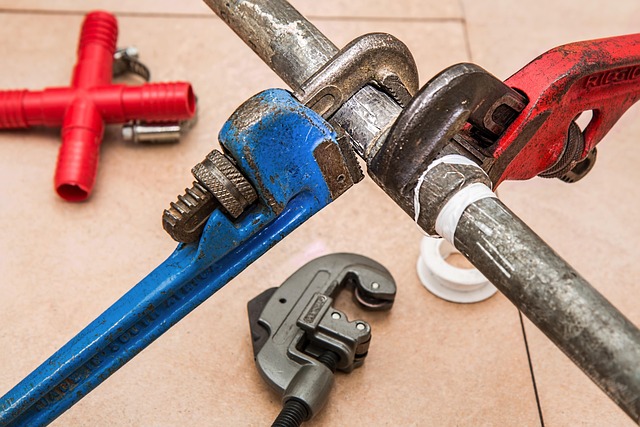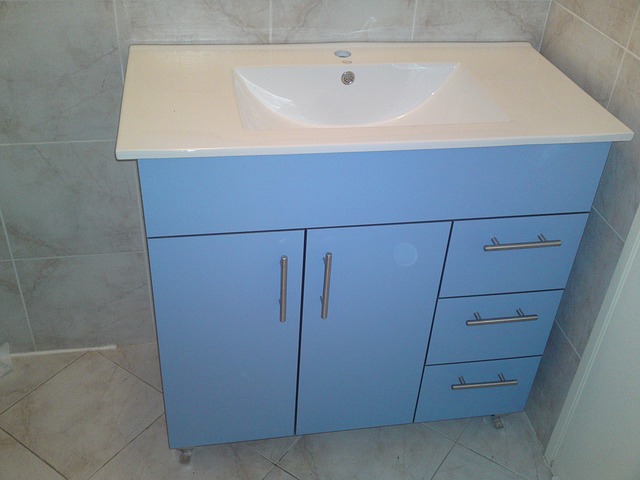Proactive measures like regular maintenance and inspections can prevent or swiftly address plumbing emergencies caused by clogs, leaks, or pipe bursts. Before a plumber arrives, inspect your home for issues, document them, and keep essential items accessible. A professional plumber will assess the problem, offer solutions, quickly resolve the crisis, provide post-service breakdowns, and give preventative tips to ensure immediate resolution and better plumbing maintenance.
In the face of unexpected plumbing disasters, preparation is key. Whether it’s a burst pipe, clogged drain, or water heater failure, knowing what to do before the plumber arrives can minimize damage and stress. This guide equips you with essential steps for handling emergency plumbing situations. From identifying common issues to preparing your home, learn how to efficiently manage these crises. Discover best practices for communication during service calls and post-resolution maintenance, ensuring a seamless experience with emergency plumbing services.
- Understanding Common Emergency Plumbing Issues
- Preparing Your Home Before the Plumber Arrives
- What to Expect During and After the Emergency Service Call
Understanding Common Emergency Plumbing Issues

Plumbing emergencies can arise from various issues, often catching homeowners off guard. Understanding common problems beforehand empowers you to act swiftly when help arrives. Clogs are a frequent offender, ranging from simple hair or food debris blockages in sinks and showers to more complex tree root intrusions in pipes. Leaks are another prevalent concern, stemming from broken pipes, faulty fittings, or corroded joints, leading to water damage and rising utility bills.
Beyond these, pipe bursts can occur due to extreme cold or aging pipes, causing sudden gushers that necessitate immediate attention. To prepare for an emergency plumber’s visit, identify potential problem areas in your home’s plumbing system. Regular maintenance, such as clearing drains of buildup and checking pipes for signs of wear, can prevent or mitigate these issues.
Preparing Your Home Before the Plumber Arrives

Before the plumber arrives, taking some proactive steps can significantly ease your emergency and ensure a smoother process. Start by inspecting your home for any visible signs of plumbing issues—leaks, clogs, or unusual noises—and document them for reference. Keep essential items like toilet paper, cleaning supplies, and buckets readily accessible to aid in temporary fixes or gathering evidence during the plumber’s visit.
Additionally, gather important information about your plumbing system, such as the locations of shut-off valves for water supply lines, details about recent repairs or installations, and any specific concerns you’ve noticed. This preparation enables the plumber to provide more accurate assessments and solutions, optimizing their emergency plumbing services.
What to Expect During and After the Emergency Service Call

When you’re faced with an emergency plumbing situation, understanding what to expect can help alleviate stress and anxiety. During your call for emergency plumbing services, a professional plumber will first assess the problem by asking detailed questions about the issue and its severity. They’ll then provide you with a clear explanation of the situation, including potential causes and available solutions, ensuring you’re well-informed throughout the process.
After arriving at your location, the plumber will get to work promptly. Depending on the emergency, they might need to turn off water supplies to prevent further damage or contain existing issues. Once the problem is identified, they’ll employ specialized tools and techniques to fix the issue efficiently. Post-service, you can expect a thorough explanation of the repair process, any recommended preventative measures, and an honest assessment of future potential problems. This proactive approach ensures not only immediate relief from your plumbing emergency but also empowers you with knowledge for better long-term maintenance.
When faced with an emergency plumbing situation, being prepared can significantly ease stress and potential damage. By understanding common issues, taking proactive measures around your home, and knowing what to expect during and after a service call, you’re not just ready for the plumber’s arrival—you’re empowering yourself to navigate these challenges smoothly. Remember, swift action and the right preparation are key when it comes to emergency plumbing services, ensuring your home stays in top shape with minimal disruption.
